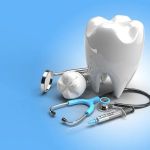How Do I Get an NHS Dentist?
Finding an NHS dentist can be a challenging task, especially for those new to the UK or unfamiliar with the healthcare system. Over the years, I've faced the same dilemma, and after much trial and error, I have learned a few tricks that can make the process easier. In this article, I'll share my experiences and offer practical tips on how to find an NHS dentist and navigate the system effectively.
1. Understanding NHS Dentistry
The National Health Service (NHS) provides dental care to the public at a significantly lower cost than private practices. This makes it an attractive option for individuals and families looking to maintain their oral health. However, access to NHS dental services has become more limited in recent years due to increased demand, leaving many people struggling to find available NHS dentists. It's important to understand how the system works to improve your chances of securing an appointment.
2. Searching for NHS Dentists in Your Area
The first step in finding an NHS dentist is to locate those available in your area. The NHS website provides a handy tool for this purpose. All you need to do is input your postcode, and it will show you a list of NHS dentists within a certain radius. You can also check with your local GP or pharmacy for recommendations on nearby NHS dental services.
Keep in mind that not all dentists offer NHS services, so it's essential to confirm that the dental practice you're interested in is accepting NHS patients before booking an appointment. Some clinics might also have waiting lists, especially in areas with high demand.
3. Call and Inquire
Once you’ve compiled a list of potential dentists, the next step is to pick up the phone and call. I learned the hard way that websites and online listings can be outdated, so a direct inquiry is the best way to verify availability. When calling, ask whether they are currently accepting new NHS patients, the process for registration, and if they offer services like checkups, fillings, and other routine procedures.
Don’t hesitate to ask about waiting times as well. Some areas have longer waiting periods due to high demand, but others may offer more immediate appointments depending on their capacity.
4. Registering as an NHS Patient
Once you’ve found a dentist who accepts NHS patients, the next step is registering with the practice. Registration often requires filling out a form with personal details, medical history, and possibly information about your previous dental care. Keep in mind that registration might not guarantee immediate access to treatment, as the dentist may need to schedule a consultation or checkup before proceeding with any dental work.
5. What If I Can't Find an NHS Dentist?
If you're unable to find an NHS dentist in your area, don’t give up just yet. You can ask your current dentist about the possibility of being transferred to an NHS service if they are privately operated. Another option is to look into community dental services, which are available for people with special needs, as well as emergency care options that may help in urgent situations.
If all else fails, private dental practices might be a fallback option, though the costs are significantly higher. Many private clinics offer affordable payment plans that might ease the financial burden if NHS services aren't available.
6. Keep Up with Regular Check-ups
Once you've successfully registered with an NHS dentist, it’s essential to maintain regular visits. Even though NHS services are often more affordable, preventative care is key to avoiding costly treatments later on. During checkups, dentists can detect early signs of issues such as cavities, gum disease, or even oral cancer. Early detection makes it easier to manage dental health, and it can prevent more severe problems down the line.
By following these steps, you can increase your chances of securing an NHS dentist and ensuring that you receive the care you need at a reasonable cost. As someone who has been through this process multiple times, I can assure you that persistence and patience go a long way when navigating the NHS dental system. If you’re still unsure, check with your local authorities or health services for more guidance.







 MGK Dental0.0 (0 review)
MGK Dental0.0 (0 review) Pearl River Family Dentistry5.0 (104 review)
Pearl River Family Dentistry5.0 (104 review) EON Clinics4.0 (24 review)
EON Clinics4.0 (24 review) Dr. Brock F. Tekin, DMD4.0 (169 review)
Dr. Brock F. Tekin, DMD4.0 (169 review) Cooper Family and cosmetic Dentistry4.0 (224 review)
Cooper Family and cosmetic Dentistry4.0 (224 review) Woodlawn Dental Gallery4.0 (537 review)
Woodlawn Dental Gallery4.0 (537 review) The Importance of Oral Health Education During Pregnancy for a Healthy Pregnancy
The Importance of Oral Health Education During Pregnancy for a Healthy Pregnancy Best Tips for Brushing Your Teeth Properly for Healthy Gums: Essential Techniques for Oral Health
Best Tips for Brushing Your Teeth Properly for Healthy Gums: Essential Techniques for Oral Health Why Skipping Dental Checkups Can Lead to Bigger Oral Health Problems
Why Skipping Dental Checkups Can Lead to Bigger Oral Health Problems Advantages of Porcelain Dental Restorations
Advantages of Porcelain Dental Restorations How Can Diabetes Cause Tooth and Gum Problems? Preventing and Managing Oral Health Issues
How Can Diabetes Cause Tooth and Gum Problems? Preventing and Managing Oral Health Issues Healthy Habits for Promoting Good Oral Health and Hygiene: Tips for a Healthy Smile
Healthy Habits for Promoting Good Oral Health and Hygiene: Tips for a Healthy Smile